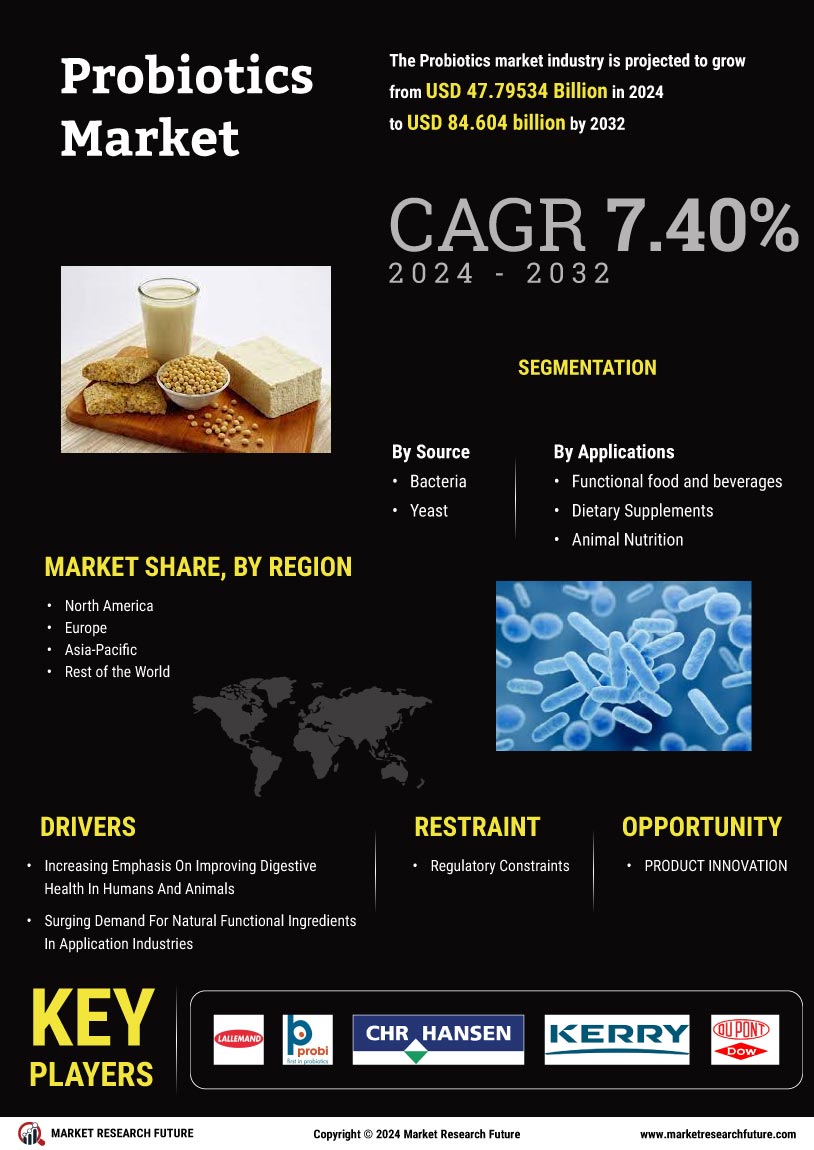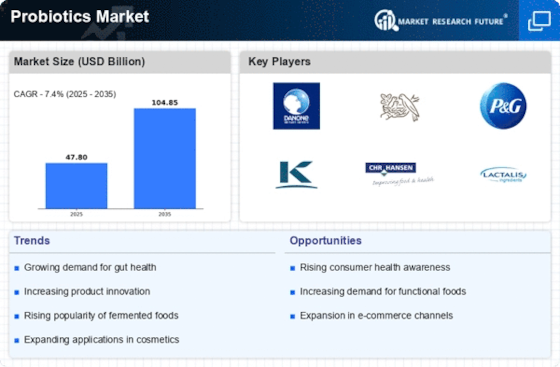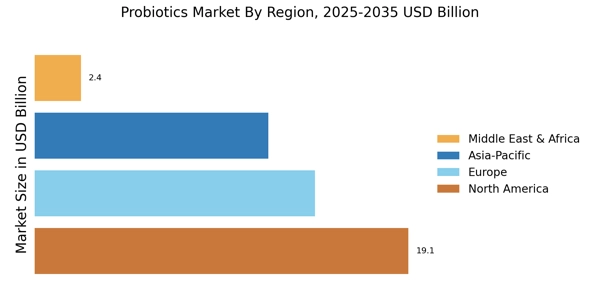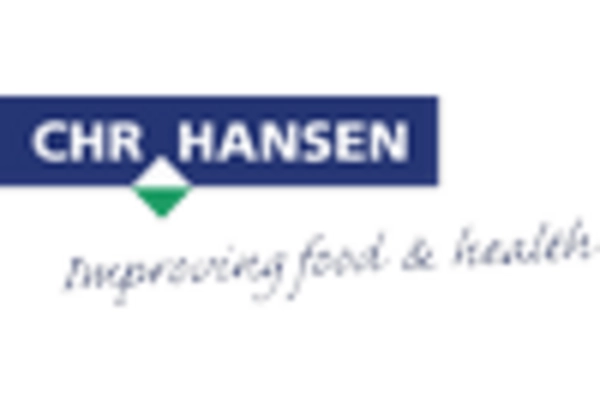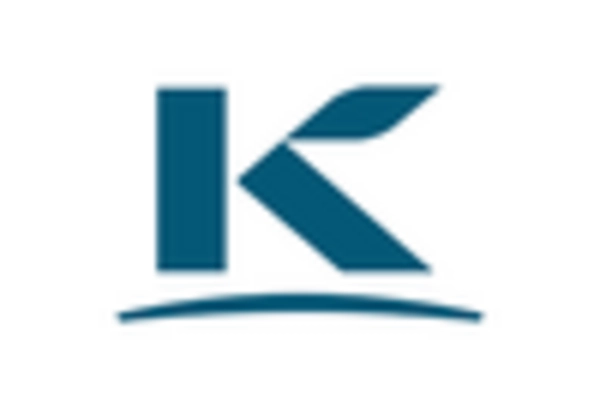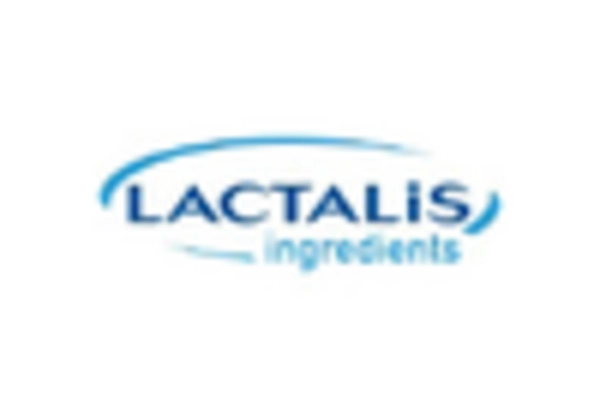Expansion of Retail Channels
The expansion of retail channels is emerging as a significant driver for the Probiotics Market. With the proliferation of e-commerce platforms and the increasing presence of probiotics in traditional retail outlets, consumers have greater access to a variety of probiotic products. This accessibility is likely to enhance consumer purchasing behavior, as individuals can easily compare products and make informed choices. Data suggests that online sales of probiotic products are expected to grow by over 30% in the next few years, reflecting a shift in consumer shopping habits. Additionally, brick-and-mortar stores are increasingly dedicating shelf space to probiotics, further supporting market growth. This expansion of retail channels indicates that the Probiotics Market is adapting to meet the evolving preferences of consumers.
Growing Awareness of Gut Health
The increasing awareness of gut health among consumers appears to be a pivotal driver for the Probiotics Market. As individuals become more informed about the connection between gut microbiota and overall health, the demand for probiotic products is likely to surge. Research indicates that a healthy gut microbiome can influence various health aspects, including immunity and mental well-being. Consequently, this awareness is fostering a shift towards preventive healthcare, where probiotics are viewed as essential supplements. The Probiotics Market is witnessing a notable rise in product offerings that cater to this demand, with a projected growth rate of approximately 7% annually over the next five years. This trend suggests that manufacturers may need to innovate continuously to meet evolving consumer preferences.
Innovation in Product Formulations
Innovation in product formulations is a critical driver for the Probiotics Market, as manufacturers strive to differentiate their offerings in a competitive landscape. The introduction of novel probiotic strains, enhanced delivery systems, and combination products that integrate prebiotics and probiotics are becoming increasingly prevalent. This innovation is not only expanding the range of available products but also improving their efficacy and consumer appeal. For instance, the development of shelf-stable probiotics and those designed for specific health conditions is likely to attract a broader consumer base. Market analysis indicates that innovative products could account for over 40% of the Probiotics Market by 2025, suggesting that companies focusing on research and development may gain a competitive edge.
Rising Popularity of Functional Foods
The rising popularity of functional foods is significantly influencing the Probiotics Market. Consumers are increasingly seeking foods that offer health benefits beyond basic nutrition, and probiotics are at the forefront of this trend. Products such as yogurt, kefir, and fortified beverages are being embraced for their probiotic content, which is perceived to enhance digestive health and overall wellness. Market data indicates that the functional foods segment, which includes probiotic-rich options, is projected to grow at a compound annual growth rate of 8% through 2025. This trend suggests that food manufacturers may need to reformulate existing products or develop new ones to meet consumer demand for functional benefits, thereby driving growth in the Probiotics Market.
Increased Focus on Preventive Healthcare
The Probiotics Market is experiencing a notable shift towards preventive healthcare, driven by consumers' desire to maintain health rather than merely treat illnesses. This trend is underscored by a growing body of evidence linking probiotics to various health benefits, including enhanced immune function and improved digestive health. As healthcare systems worldwide emphasize preventive measures, the demand for probiotic supplements is likely to rise. Market data suggests that the preventive healthcare segment is expected to account for a significant share of the Probiotics Market, potentially reaching USD 70 billion by 2026. This shift indicates that consumers are increasingly viewing probiotics not just as dietary supplements but as integral components of their health regimens.
